Gardeners Woking: Cultivating Beautiful Spaces in Your Local Community
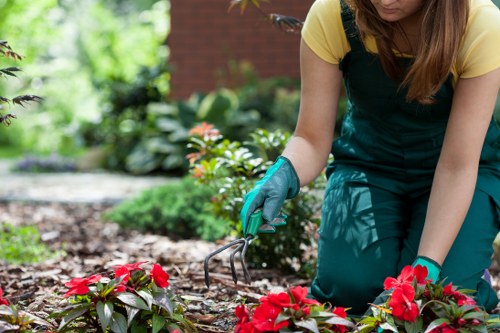
Gardening is more than just a hobby; it's a passion that transforms outdoor spaces into vibrant, thriving environments. In Woking, a town known for its lush parks and green spaces, gardeners play a crucial role in maintaining and enhancing the natural beauty of the area. Whether you're a seasoned gardener or just starting out, understanding the unique aspects of gardening in Woking can help you create a flourishing garden that complements your surroundings.
Woking's climate is mild, making it ideal for a variety of plants. The town experiences moderate rainfall and temperatures, which allows for year-round gardening. This favorable climate supports a diverse range of vegetation, from colorful flowers to sturdy shrubs and trees. Gardeners in Woking can take advantage of these conditions to experiment with different plant species and gardening techniques.
One of the key aspects of successful gardening in Woking is understanding the local soil composition. The soil in Woking is generally fertile, but it's essential to conduct soil tests to determine its pH level and nutrient content. By knowing the specifics of your garden’s soil, you can make informed decisions about what plants will thrive and what amendments might be necessary to improve growth conditions.
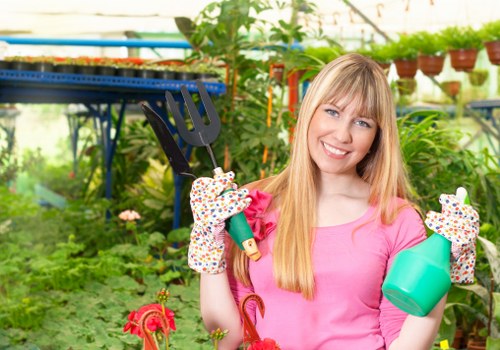
**Choosing the Right Plants** is fundamental to creating a beautiful garden in Woking. Native plants are an excellent choice as they are well-adapted to the local climate and soil conditions. Plants such as lavender, foxgloves, and roses not only add color and texture but also attract pollinators like bees and butterflies, which are beneficial for the overall ecosystem.
In addition to native species, gardeners in Woking often incorporate ornamental plants to add variety and interest to their gardens. Perennials, annuals, and biennials can be used strategically to ensure that there is always something in bloom throughout the year. Seasonal planning is crucial to maintain a dynamic and attractive garden that evolves with the changing seasons.
**Sustainable Gardening Practices** are gaining popularity among Woking gardeners. These practices focus on minimizing environmental impact while maximizing garden productivity. Techniques such as composting, rainwater harvesting, and the use of organic fertilizers contribute to a healthier garden and a more sustainable local environment.
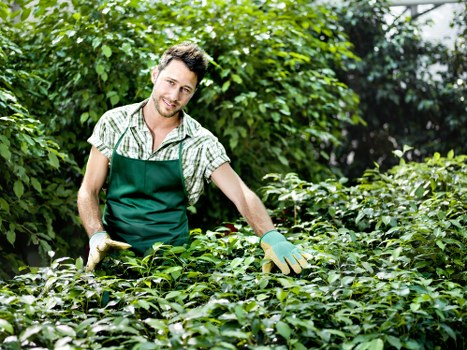
Proper maintenance is essential for any thriving garden. Regular tasks like weeding, pruning, and mulching help keep plants healthy and enhance the garden's appearance. In Woking, gardeners often adopt mulching to retain soil moisture, suppress weeds, and regulate soil temperature. Mulch can be made from various organic materials, including wood chips, straw, and compost, each offering unique benefits to the garden.
**Pest Management** is another critical area for gardeners in Woking. While pests can pose a threat to garden health, using natural and non-toxic methods to manage them is preferred. Encouraging beneficial insects, such as ladybugs and predatory beetles, can help control pest populations. Additionally, companion planting—growing certain plants together to deter pests—can be an effective strategy.
**Garden Design and Layout** play a significant role in the overall success of a garden. Thoughtful design considerations, such as plant arrangement, pathway placement, and focal points, can create a harmonious and aesthetically pleasing space. In Woking, gardeners often draw inspiration from the town's natural landscapes and architectural styles to design gardens that blend seamlessly with their surroundings.
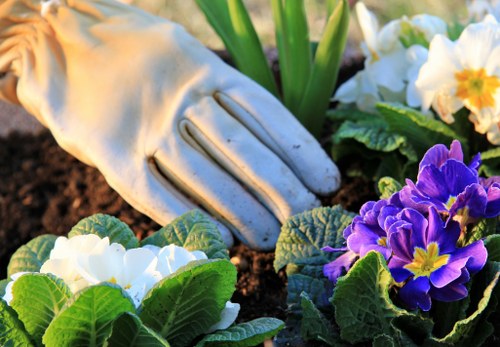
**Community Gardening** initiatives are flourishing in Woking, bringing together gardeners of all ages and skill levels. These shared spaces not only promote social interaction but also foster a sense of community and collective responsibility for maintaining green areas. Participating in community gardens can provide valuable opportunities for learning and collaboration, enriching the gardening experience for everyone involved.
**Seasonal Gardening Tips** are essential for maintaining a year-round garden. In spring, planting bulbs and annuals can bring vibrant colors to the garden. Summer requires diligent watering and pest control, while autumn focuses on preparing the garden for winter by planting hardy perennials and protecting sensitive plants from frost. Winter gardening can include planning for the upcoming growing season and maintaining garden tools and equipment.
**Tools and Equipment** are the gardener's best friends. Investing in quality tools, such as pruners, spades, and watering systems, can make gardening tasks more efficient and enjoyable. Proper maintenance of tools ensures their longevity and effectiveness, making gardening a more rewarding experience.
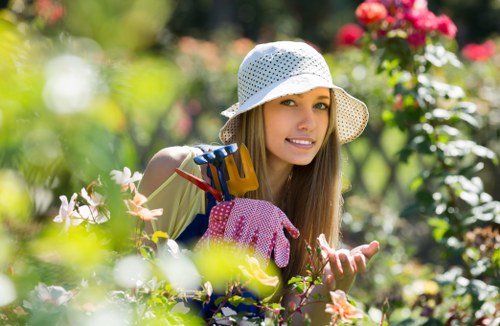
**Local Gardening Resources** in Woking provide valuable support to gardeners. From gardening clubs and workshops to local nurseries and garden centers, these resources offer expertise, inspiration, and access to a wide range of plants and materials. Leveraging these resources can enhance your gardening knowledge and help you stay updated on the latest trends and best practices.
**Gardening for Wildlife** is an important consideration for many gardeners in Woking. Creating habitats that support local wildlife, such as birds, bees, and butterflies, contributes to the biodiversity and ecological health of the area. Planting a variety of flowering plants, providing water sources, and installing birdhouses are simple ways to encourage wildlife in your garden.
**Gardening Challenges** in Woking can include dealing with pests, unpredictable weather, and space constraints. However, with careful planning and the right strategies, these challenges can be overcome. Staying informed about local gardening conditions and seeking advice from experienced gardeners can help navigate these obstacles effectively.
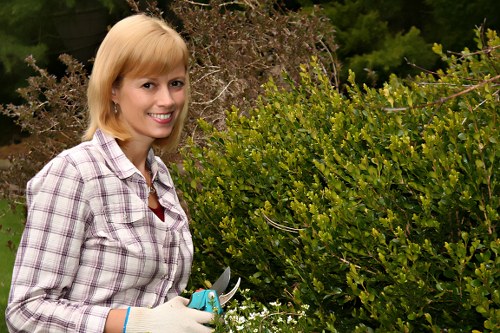
In conclusion, gardening in Woking offers a fulfilling and enriching experience, allowing individuals to connect with nature and contribute to the community's green spaces. By understanding the local climate, choosing the right plants, and adopting sustainable practices, gardeners can create beautiful and resilient gardens. Engaging with local resources and participating in community initiatives further enhances the gardening journey, fostering a vibrant and supportive environment for all gardening enthusiasts in Woking.
Start your gardening journey in Woking today and transform your outdoor space into a stunning sanctuary that reflects your personal style and nurtures the natural beauty of your surroundings.
Frequently Asked Questions
1. What are the best plants for a garden in Woking?
Native plants such as lavender, foxgloves, and roses thrive in Woking's climate. These plants are well-adapted to the local conditions and attract beneficial pollinators.
2. How can I improve the soil quality in my Woking garden?
Conducting a soil test is the first step. Based on the results, you can add organic matter like compost or specific fertilizers to adjust the pH and nutrient levels for optimal plant growth.
3. What sustainable gardening practices are recommended in Woking?
Implementing composting, rainwater harvesting, and using organic fertilizers are effective sustainable practices that help maintain a healthy garden while minimizing environmental impact.
4. How do I manage pests naturally in my garden?
Encouraging beneficial insects, such as ladybugs and predatory beetles, and using companion planting techniques can help control pest populations without the need for harmful chemicals.
5. Are there community gardening groups in Woking?
Yes, Woking has several community gardening initiatives where gardeners can collaborate, share knowledge, and participate in maintaining shared green spaces.
